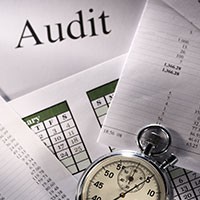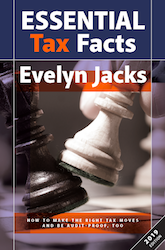It’s Officially Tax Audit Season: Know Your Taxpayer Rights

Christine Steendam
Possibly even more dreaded than the tax filing season is the tax audit season! But, when you know your taxpayer rights and have confidence that your records are audit-proof, you are empowered to face any audit knowing you’ve done your due-diligence. Working with an experienced tax specialist is a good defence, too.
With the increasingly complex Canadian tax system, and bolstered human and robo resources at the CRA, audits have the potential of becoming more stressful than ever before, especially for certain tax filers. For example, those who pay dividends to non-active family members from a private corporation, and those who claim receipt-verified deductions like child care or moving expenses, or larger non-refundable credit like medical or charitable expenses. The fact of the matter is, any Canadian citizen can and should expect to be audited at some point, especially if they are self-employed.
If you’re a tax professional, this makes now a great time to help your clients brush up on their taxpayer rights, and it’s important that you also remain in-the-know when acting as their representative with the CRA.
CRA’s Taxpayer Bill of Rights is a list of 16 taxpayer rights and CRA’s 5 commitments to small business. We’re going to focus on 5 of the rights laid out that pertain to empowering you and your clients throughout audit season.
- First and foremost, you have the right to receive entitlements and to pay no more and no less than what is required by law. (Taxpayer Bill of Rights, Right 1)
You can expect to receive any and all relevant tax credits, benefits, and refunds which you are entitled to under the law, provided you claim or apply for them as necessary on your tax  return. You have the right to use these entitlements to pay the least amount of tax possible within the confines of the law. However, the burden of proof lies with you. So, anything you claim, you must be able to support with required documentation.
return. You have the right to use these entitlements to pay the least amount of tax possible within the confines of the law. However, the burden of proof lies with you. So, anything you claim, you must be able to support with required documentation.
- You have the right to a formal review and a subsequent appeal. (Taxpayer Bill of Rights, Right 4)
If you believe that your right to pay the least amount of tax possible within the law has been infringed upon, you have the right to request a formal review of your file and a subsequent appeal. If it’s a simple matter of providing more information, you can request an adjustment to your return based on the new information.
If an adjustment to your return or discussing the matter with a representative does not solve the issue to your satisfaction, you have the right to appeal or reject the ruling or request a second-level review.
In some situations, the CRA can still take action to collect any owed taxes there may be, so it’s important to know whether or not the CRA still intends to take any collection action during a dispute or review. But, you have some rights when it comes to that, as well.
- You have the right, unless otherwise provided by law, not to pay income tax amounts in dispute before you have had an impartial review. (Taxpayer Bill of Rights, Right 7)
If you are in the process of a dispute, an impartial review by the CRA or if you have taken your appeal to the Tax Court of Canada, you have the right to refrain from paying personal tax amounts until a decision or final ruling has been made. It’s important to remember, though, that interest charges will continue to accumulate during this period. At the moment, that’s 6% interest compounded daily.
However, if you object to the decision or final ruling, and if you can provide evidence that the assessment is incorrect, CRA states in the bill of rights that “we will suspend collection actions on the part of assessed taxes that you are questioning until the matter is reviewed and resolved.” Any amounts that are not included in this dispute must be paid immediately.
In the end, it comes down to the burden of proof being on you. But it’s not just you that is held accountable.
- You have the right to expect us to be accountable. (Taxpayer Bill of Rights, Right 11)
The CRA and its representatives are also to be held accountable to all Canadians. That means that you should expect and require that the information the CRA provides you with is both accurate and easily understood. If you believe that this is not the case in your situation, you can request for a CRA representative to explain a decision that they have made, and they can make any needed changes.
With the complexity of Canada’s taxation system, the average Canadian may have a hard time holding the CRA accountable. Especially when it comes to individual taxpayer’s rights, and so, it is always advisable to have an appropriate tax expert – like a DFA-Tax Services Specialist™ -represent you.
- You have the right to be represented by a person of your choice. (Taxpayer Bill of Rights, Right 15)
Although compliance, burden of proof, and responsibility still falls squarely on your shoulders, you can elect to choose a person to represent you and to seek advice about your tax and benefits. If you choose to have someone represent you, you will need to authorize the CRA to deal with this person. Until the CRA receives authorization, either by utilizing the “authorize my representative” service through My Account, or by mailing in a completed T1013 form, the CRA cannot disclose or discuss your situation with anyone other than you.
Additional Educational Information: Audit-proof your return for 2019 by pre-ordering Essential Tax Facts 2019 Edition, shipping out May 24, 2019. Essential Tax Facts covers everything you need to know to prepare for the 2019 income tax filing season, and provides audit-proofing checklists, tips and tricks to taxpayers. Order online, or call 1-866-953-4769 to pre-order your copy today.
COPYRIGHT OWNED BY KNOWLEDGE BUREAU INC., 2019.
UNAUTHORIZED REPRODUCTION, IN WHOLE OR IN PART, IS PROHIBITED.
 |
 |
 |
 |
| Refer a Friend |
Research |
Calculators |
Course Trials |
 |
 |
 |
 |